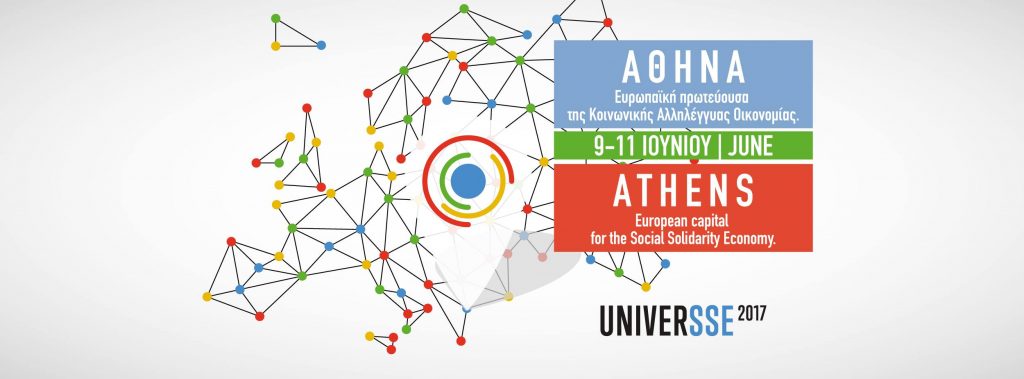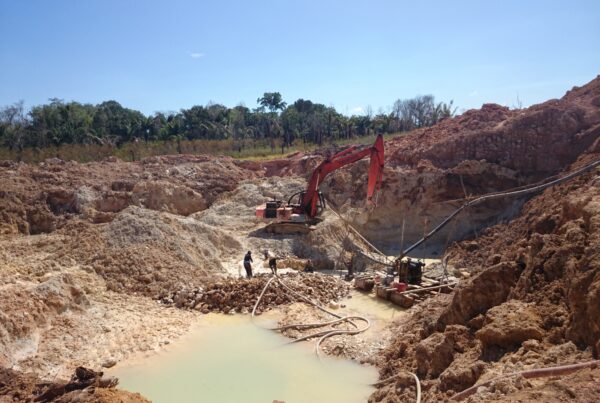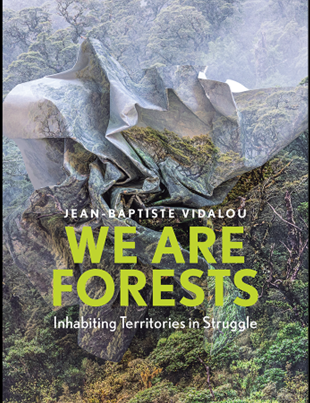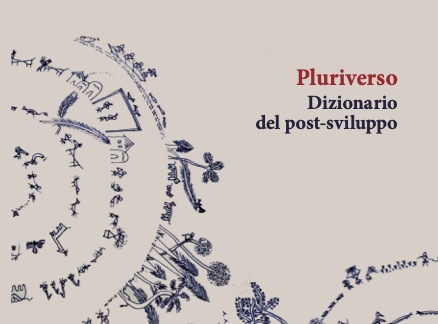By Bengi Akbulut *
The 4th Congress of the Intercontinental Network for the Promotion of Social Solidarity Economy (RIPESS)-Europe, UniverSSE, took place in Athens last month–with plenty of food for thought for political ecologists.
“We are experiencing the derailing of globalised neoliberalism”, read the framework of UniverSSE— a feeling shared by many political ecologists. And it goes on to say, “Every universe is composed by necessity and vision alike (…) From resisting (a world) to creating (a new one)”.
The 4th Congress of the Intercontinental Network for the Promotion of Social Solidarity Economy (RIPESS)-Europe, UniverSSE, took place in Athens between June 9-11, 2017. The event, following its priors convened in Barcelona (2011), Lille (2013) and Berlin (2015), brought together representatives of social and solidarity economies from different parts of Europe, and was attended by some 1000 people. During the three days that it lasted, the event venue itself was turned into a space of social and solidarity economy: food and drinks were prepared by solidarity kitchens based in Athens, and the alternative currency of the conference, Coopernicus, was used in all monetary transactions.
The congress was organized within 6 thematic zones and through different session formats, such as panels, workshops, and assemblies. The discussions focused on a variety of topics, including labor and cooperation within the social solidarity economy (SSE), agroecology and food security, social/solidarity markets, finance and alternative currencies, interlinks with the SSE and the commons, collective/cooperative housing and co-existence with refugees.
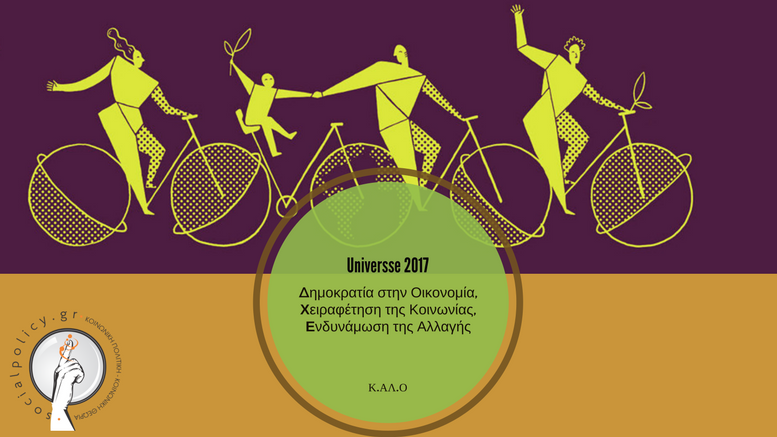
While some of the debates were geared towards pushing public policies that are supportive of the SSE, others centered on how to strengthen and expand the existing network of SSE through self-organized tools and methods. Within the latter, sessions have picked up how different configurations of the SSE can overcome challenges they face: What kind of a market, for instance, can help build a more self-sufficient SSE network? How can different value inflows and outflows across SSE initiatives be revealed to build more resilient structures? How can fair trade be a strengthening tool for SSE? What are the alternative financial tools and financing mechanisms available to the SSE?
Sessions built on co-learning and sharing of experience across SSE representatives were especially noteworthy. These were the venues where experiences with, for instance, participatory collective mapping or the use of time-banking and alternative currencies were discussed by different SSE initiatives themselves.
From the many enriching debates –some not necessarily on ecology per se— emerged themes that different threads within political ecology have also been concerned with. One such thread was the question of value and valuation, which has recently been picked up by a debate on ENTITLE blog as well.
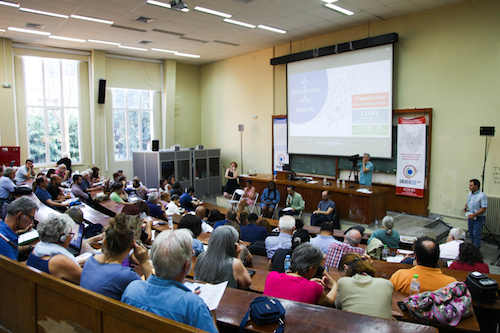
Source: RIPESS Europe
The debates on the kinds of markets to link different nodes of SSE, for instance, were accompanied by a discussion of how to represent different flows of value. There are already many existing examples of social markets or alternative currencies used by SSE initiatives, such as the Solidarius and Mercado Social. Yet the point is not only building a parallel market, but also making it work with different objectives and based on different principles. How to avoid relying exclusively on monetary value signs (i.e. prices) was discussed extensively within this context; so were alternative ways of social valuation to capture different (non-monetarized) capacities and needs.
What is at stake here, then, is the question of what we consider to be values in our economies, and how we renumerate them. Do we only consider forms of labor, goods and services that command a monetary value, or do we build tools and mechanisms to recognize non-monetary flows of value?
The commons was another node of debate that has particular relavance to political ecology. While past congresses of RIPESS have definitely tackled it, this year’s congress was first in engaging with the notion of the commons more directly and extensively. In addition to a number of panels devoted to the commons, there were workshops and open assemblies that explored the links between SSE and the commons, and how to build an economy of the commons. The session on SSE practices on natural commons, for instance, featured participants from European Federation of Renewable Energy Cooperatives (RESCOOP) and the European Water Movement, where opportunities as well as challenges of organizing the field of commons within an SSE vision were discussed.
At a time when political ecologists are debating pathways into post-capitalist and post-growth futures, UniverSSE was inspiring and timely, to say the least. It has foregrounded the question of “the means of transition”, so to speak, for political ecology: who are the potential subjects of a post-growth post-capitalist transition, and do they have command over the means (material as well as immaterial) of such a transition? More importantly, how do we claim and reclaim the means of transition?
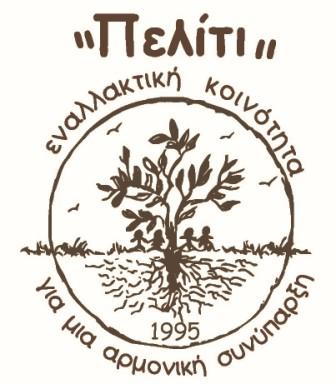
The struggle for seeds by the Peliti Community is a telling example in this respect: when farmers cannot manage their seeds, they are often locked within specific farming practices, i.e. those that involve high chemical use and mechanization. That is to say, without reclaiming seeds, there is only a limited horizon of action in terms of organizing farming practices differently, in a way that is more conducive for a post-growth post-capitalist transition. A similar parallel can be drawn with energy and water: transition to an alternative future will be substantially hard without organizing the production and provision of energy and water in local, collective and autonomous forms. The SSE provides an opening especially in this sense.
Hosted in the heart of a rich panaroma of SSE practices, as well as of growing seeds of a post-growth vision, the UniverSSE 2017 made it clear, once more, that the social and solidarity economy has a lot to offer to political ecologists—especially for those of us who are not only challenging the world but aspiring to create a new one.
*Bengi Akbulut is an assistant professor at the Department of Geography, Planning and Environment, Concordia University.


